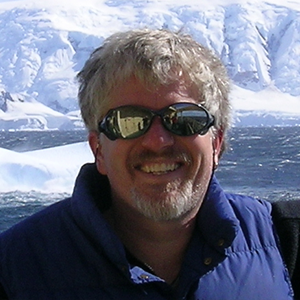Downloads
Research Interests
The purpose of my research is to elucidate the active microbes in a variety of complex environments, and to understand the mechanisms driving microbial diversity and biogeochemical processes. Specifically, I use nucleic acid based analyses to identify those microorganisms (prokaryotic, archaeal, and eukaryotic) that are making ribosomes or incorporating C and N into their genomes. These microbes are by definition “active” and are controlling the biogeochemistry of the habitats in which they are found. These research efforts have focused on active bacteria in aeolian systems, in aquatic systems, in association with eukaryotic hosts, and in sediments/soils. Additionally, our research spans a continuum from studies of pure cultures, to engineered systems, to field measurements. I believe that understanding the biological forces shaping microbial communities and their activity will lead to better predictions regarding the biogeochemical processes that sustain life on this planet.
Short History
Lee Kerkhof received his Ph.D. from the Univ. of CA, San Diego/Scripps Institution of Oceanography in 1991. He had post-doctoral experience at the Univ. of CA/Irvine, the Agouron Institute, and Brookhaven National Laboratory before arriving at Rutgers in 1994. Dr. Kerkhof has been at Rutgers for over 20 years and is currently a Professor in the Department of Marine and Coastal Sciences.
Teaching Efforts
Microbial Life (16:681:501) Graduate survey course on the breadth of microbial life and diversity in terrestrial and aquatic environments. Emphasis is placed on the ecological role microbes play in habitats ranging from microbial mats to the human body.
Ocean Ecology (11:628:462) and Biological Oceanography(16:712:522) Undergrad/Grad lecture course focused on understanding the interactions of marine organisms with each other and with the physical, chemical, and geological properties of the ocean.
Introduction to Oceanography (11:628:120) Undergrad lecture course introducing non-major students to the essential aspects of oceanography, including geological, physical, chemical, and biological processes.
Readings/exercises have students learn how ocean systems work, how marine systems are studied, how the ocean influences Earth’s biosphere and atmosphere, how the oceans support living ecosystems, and which issues are of concern for the fate of oceans and their coastlines.

